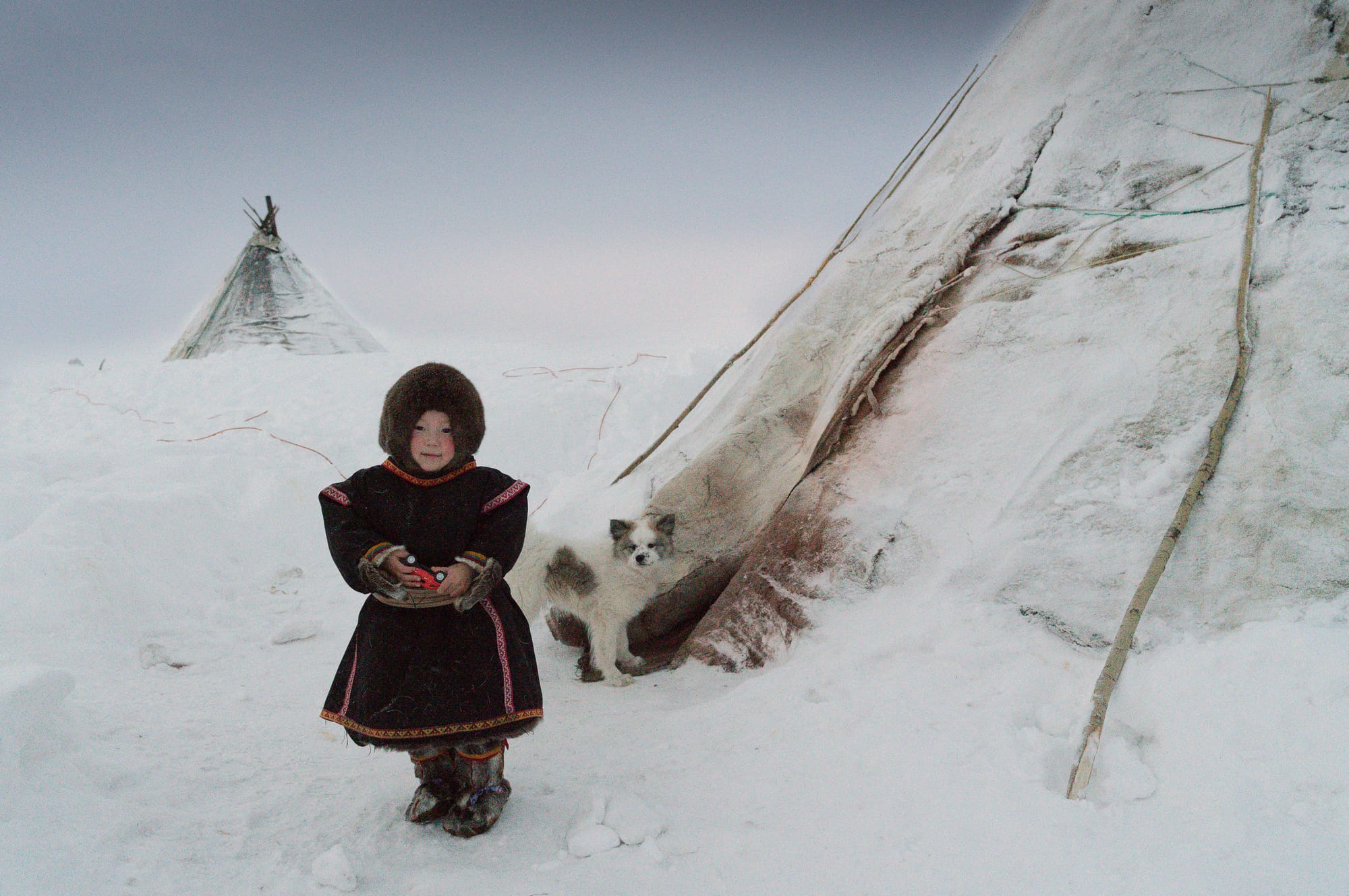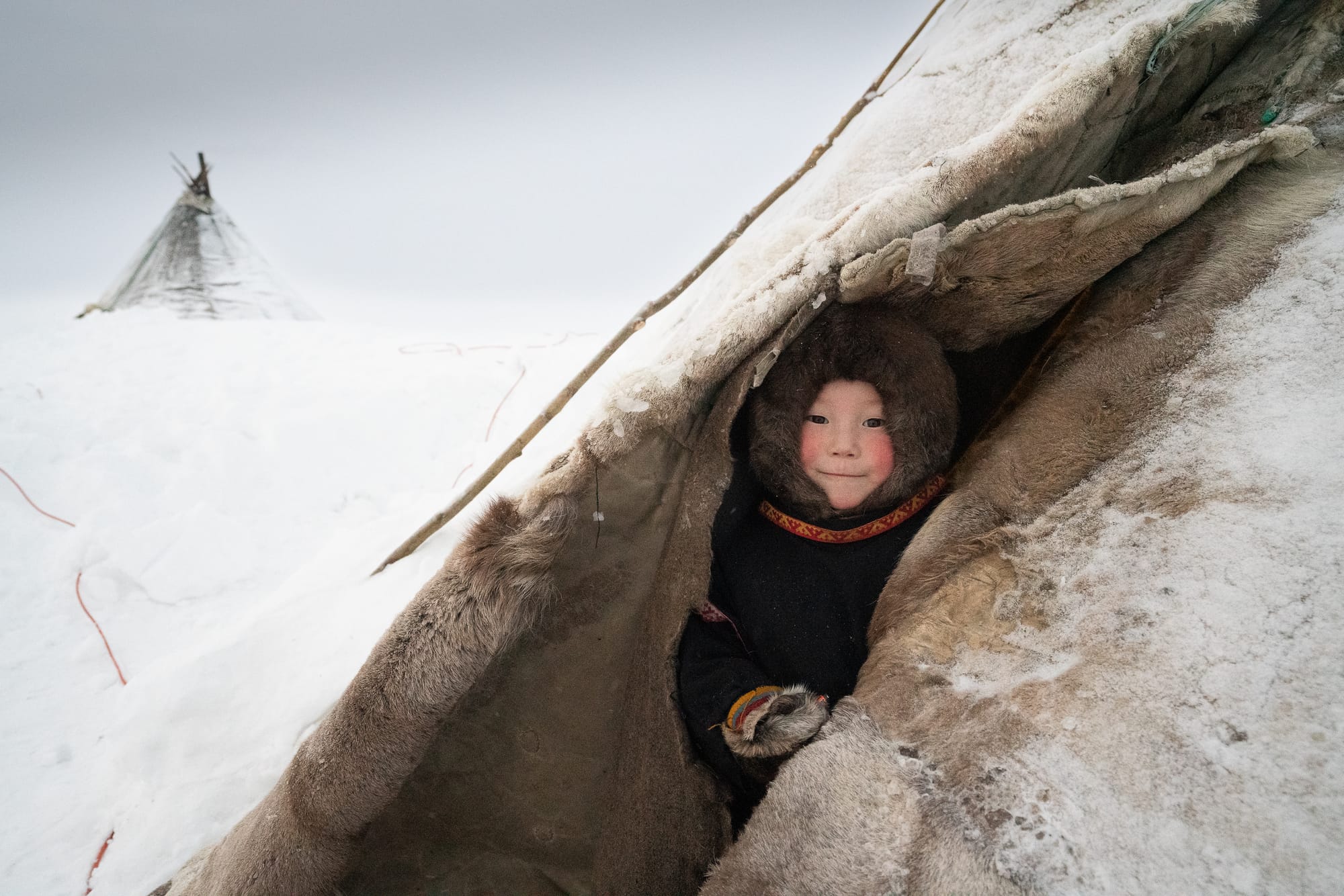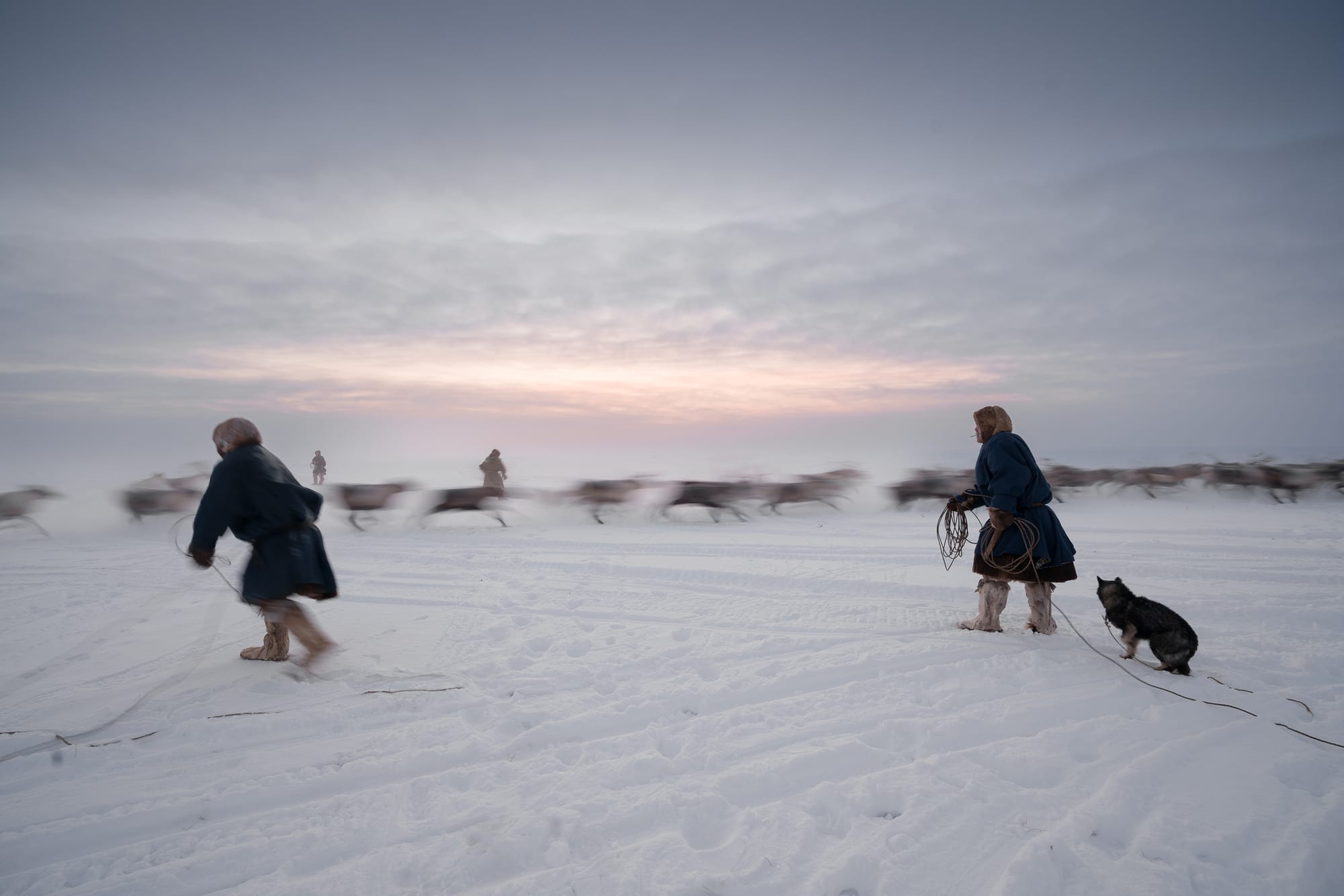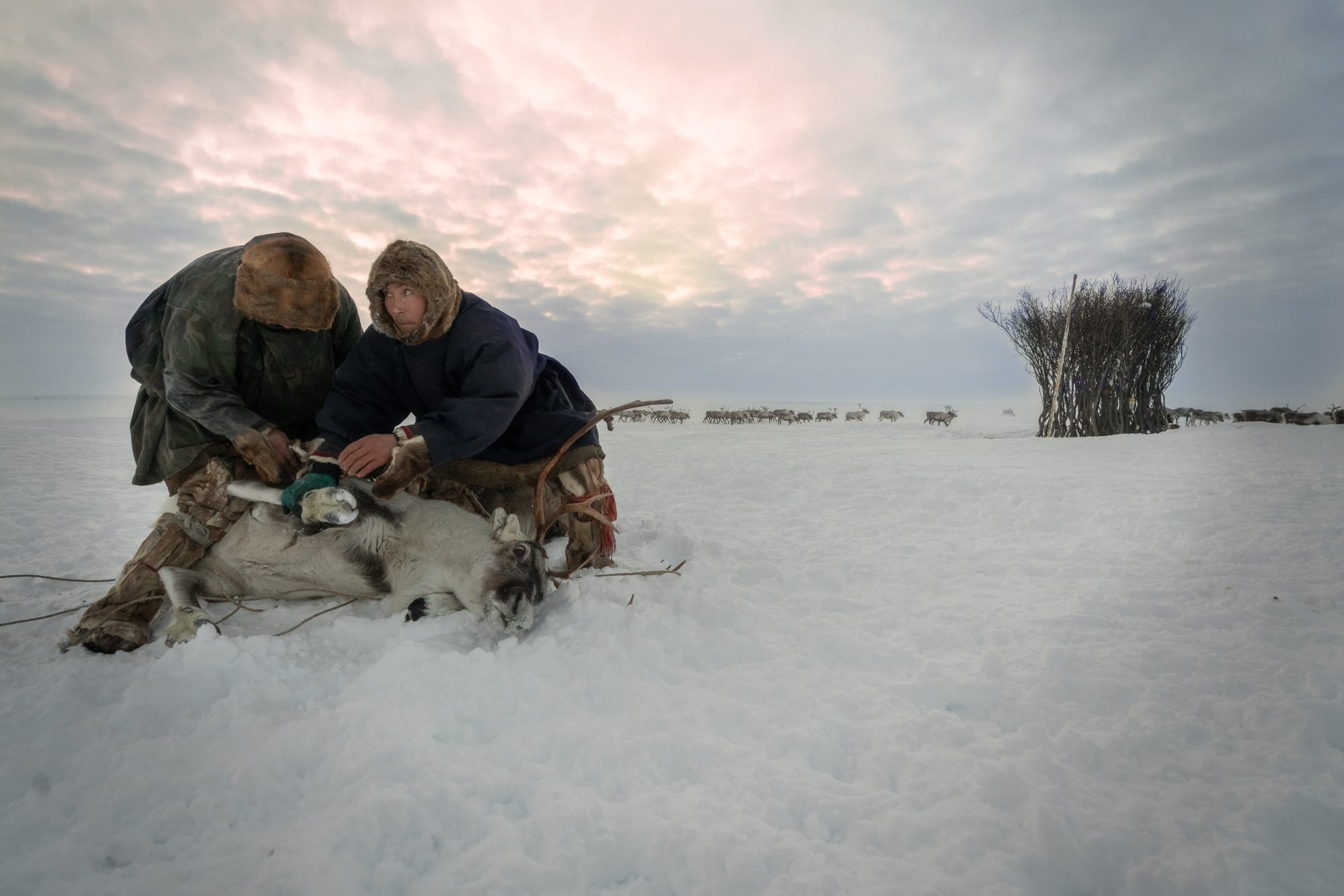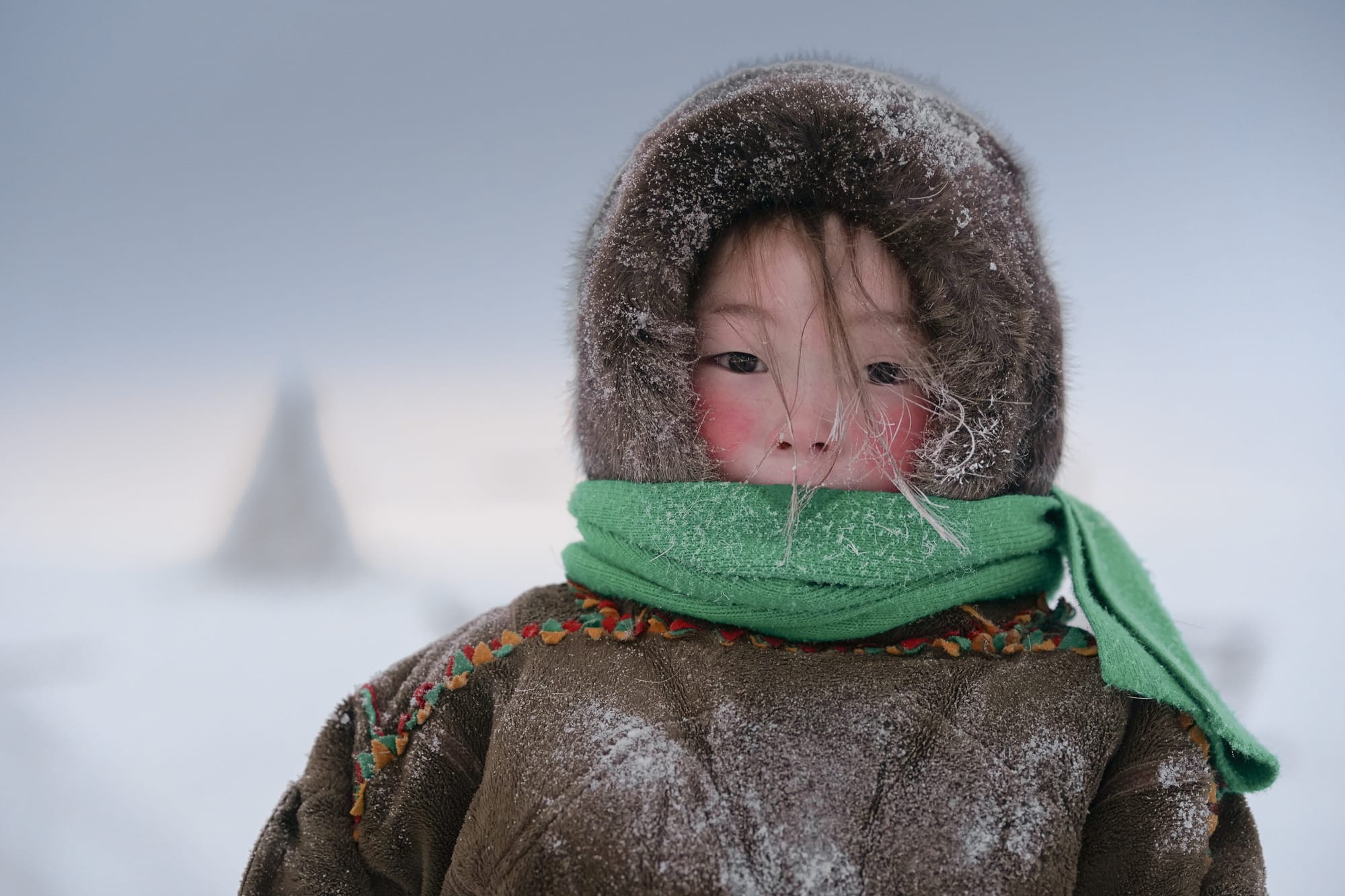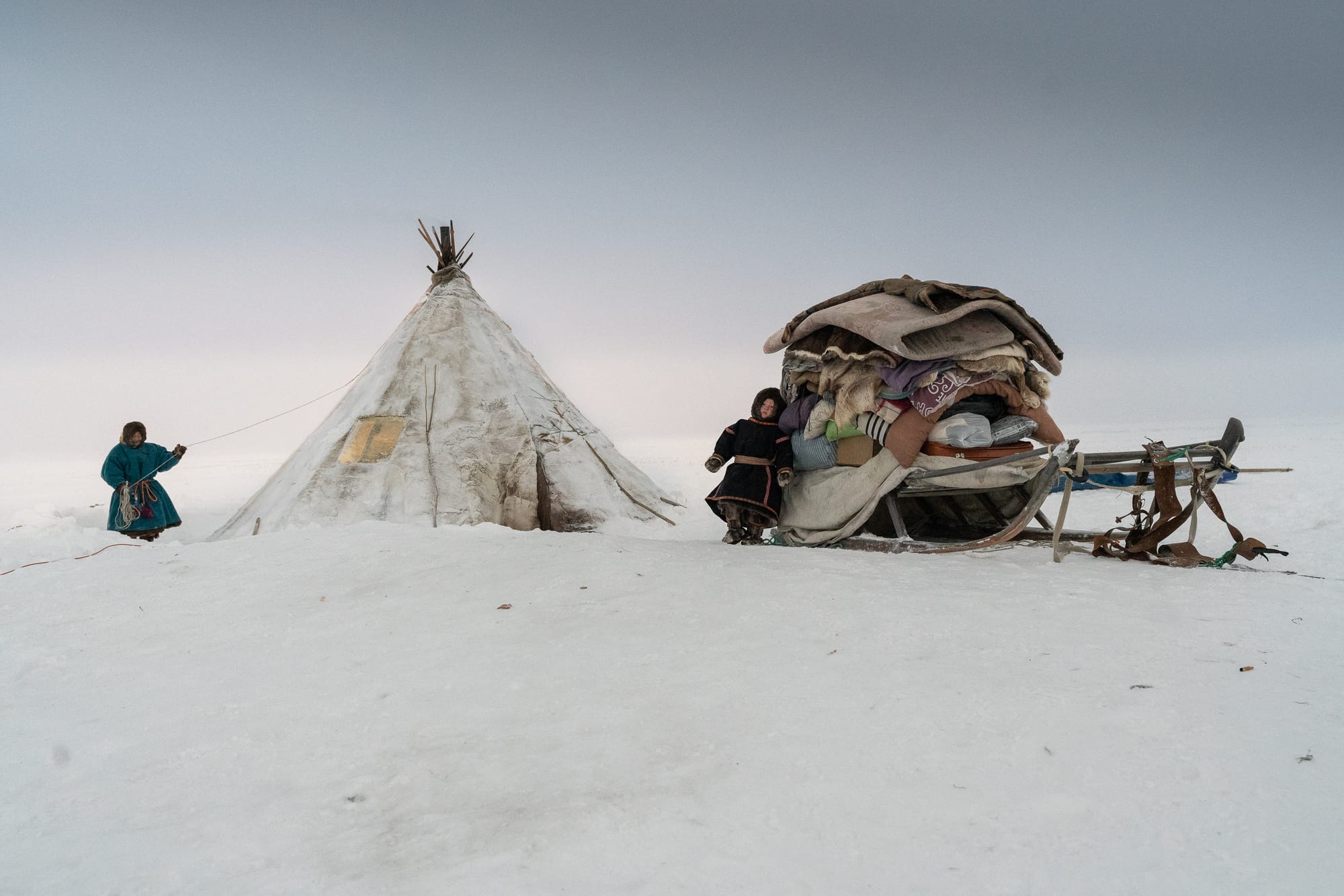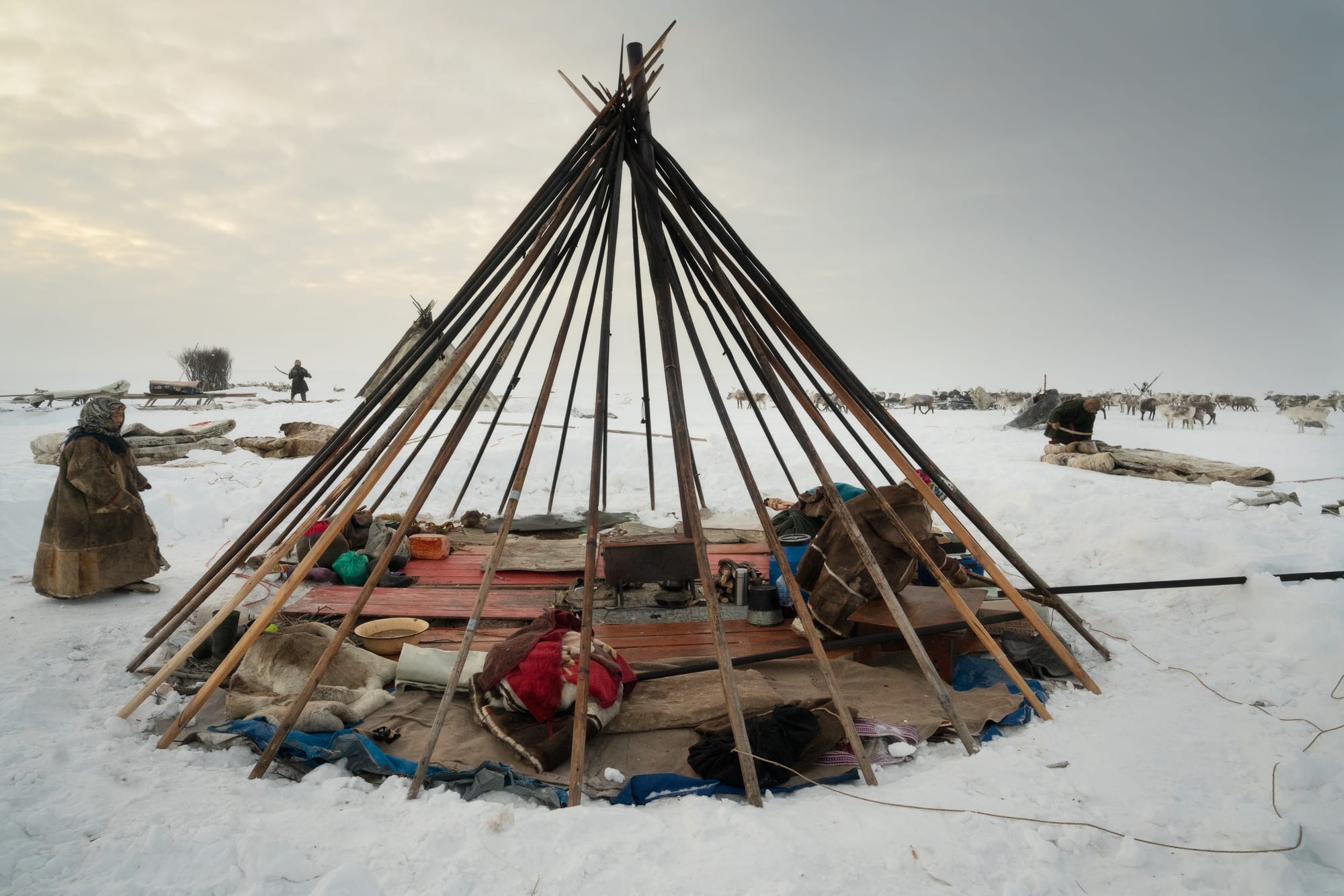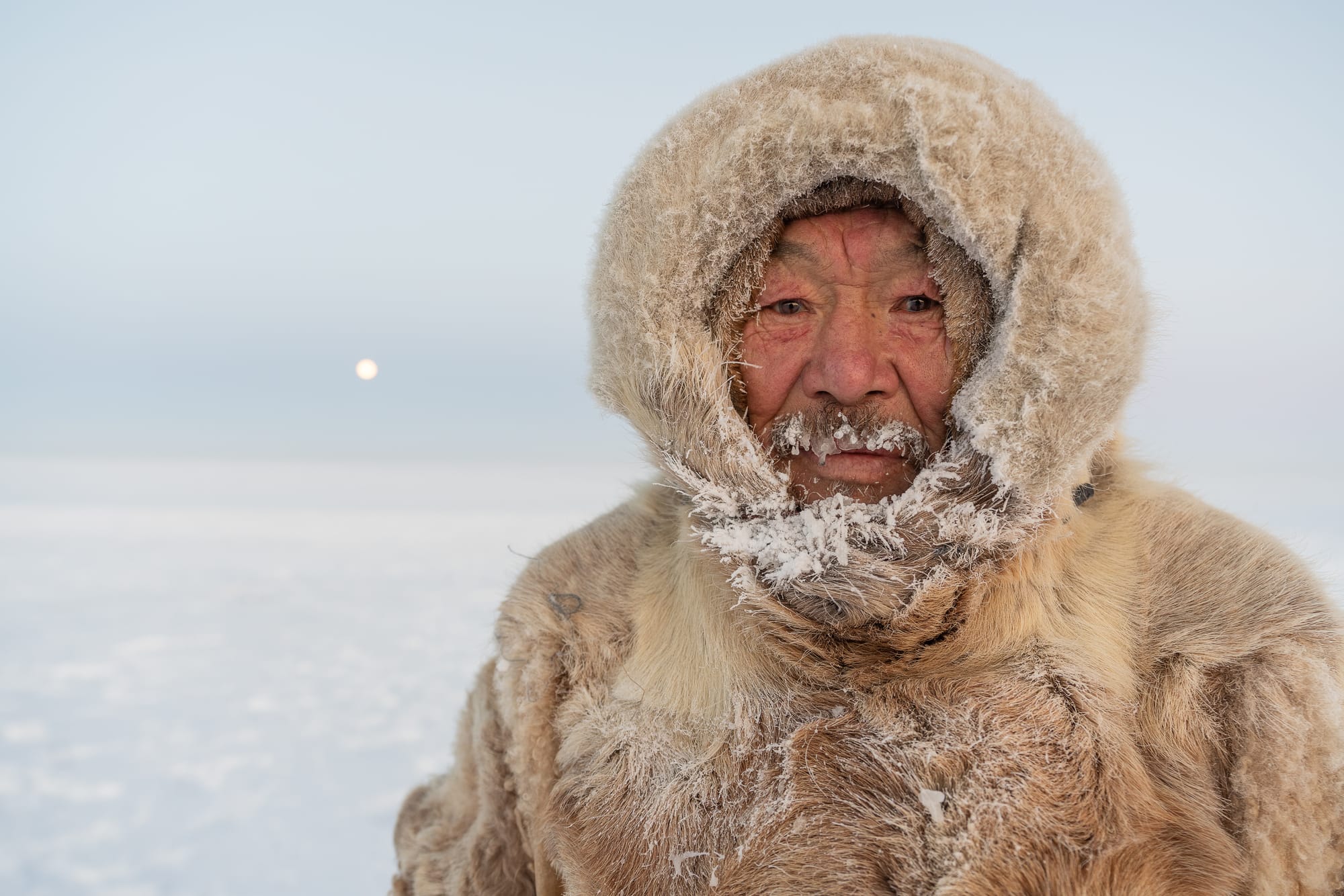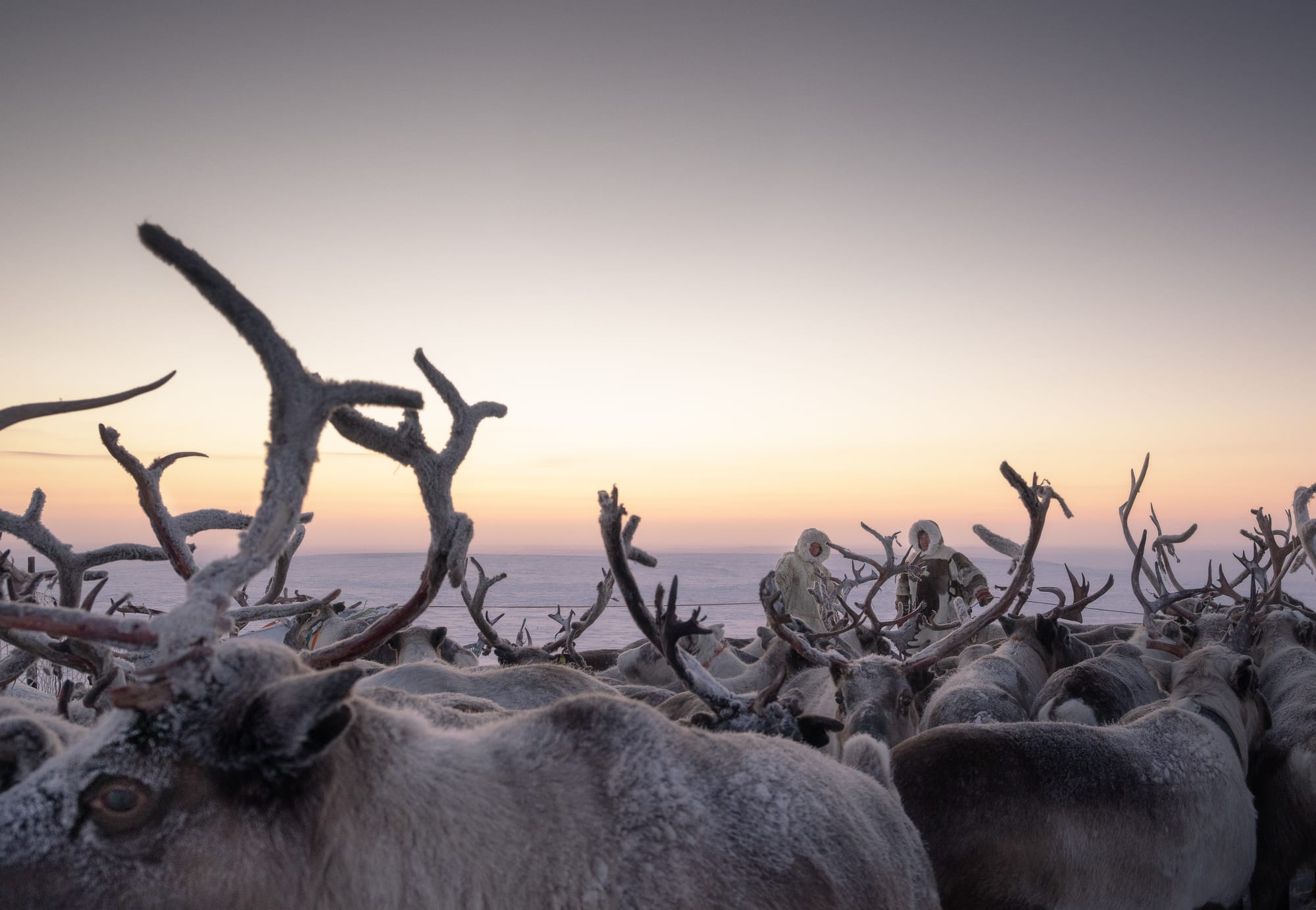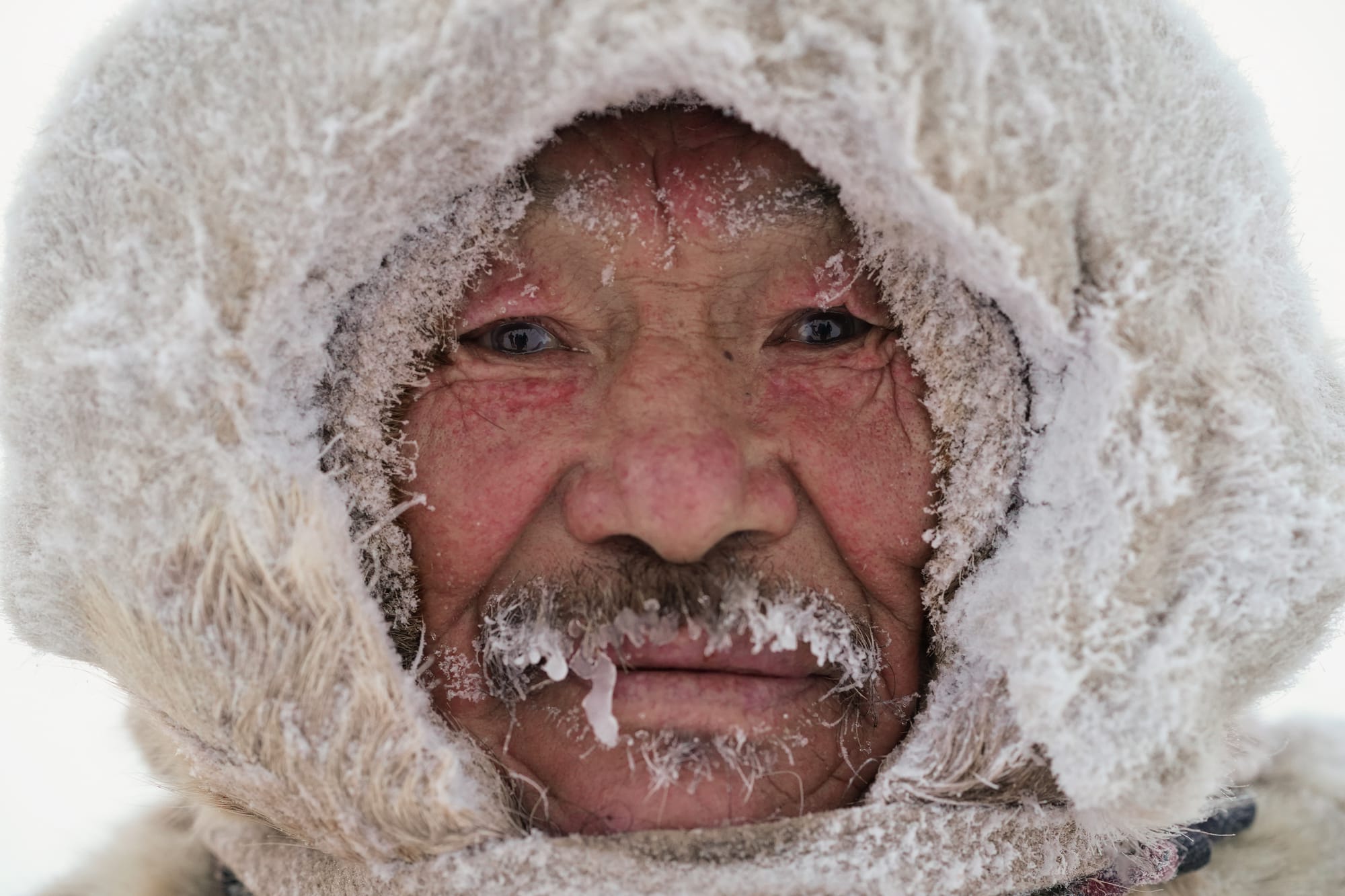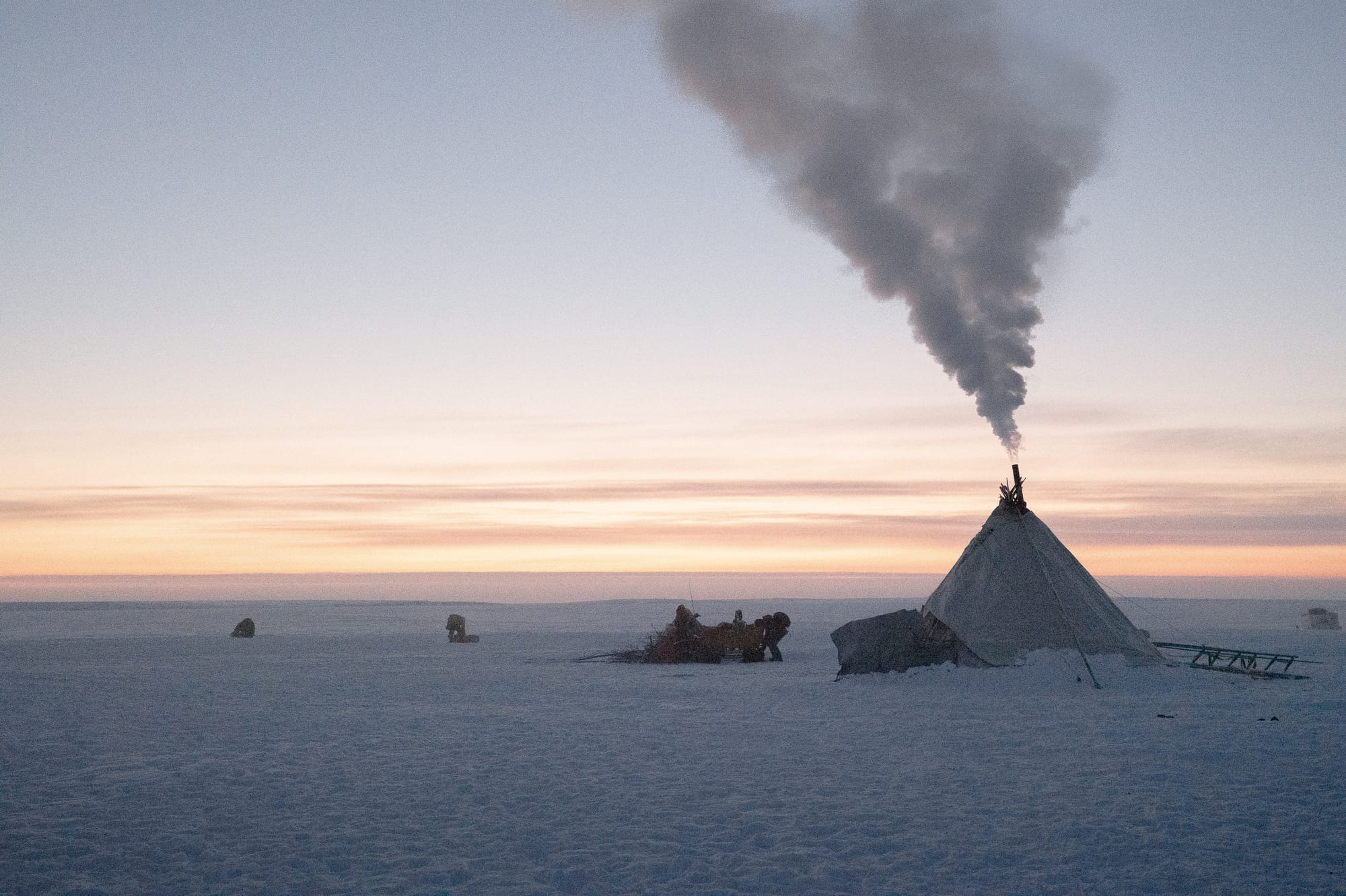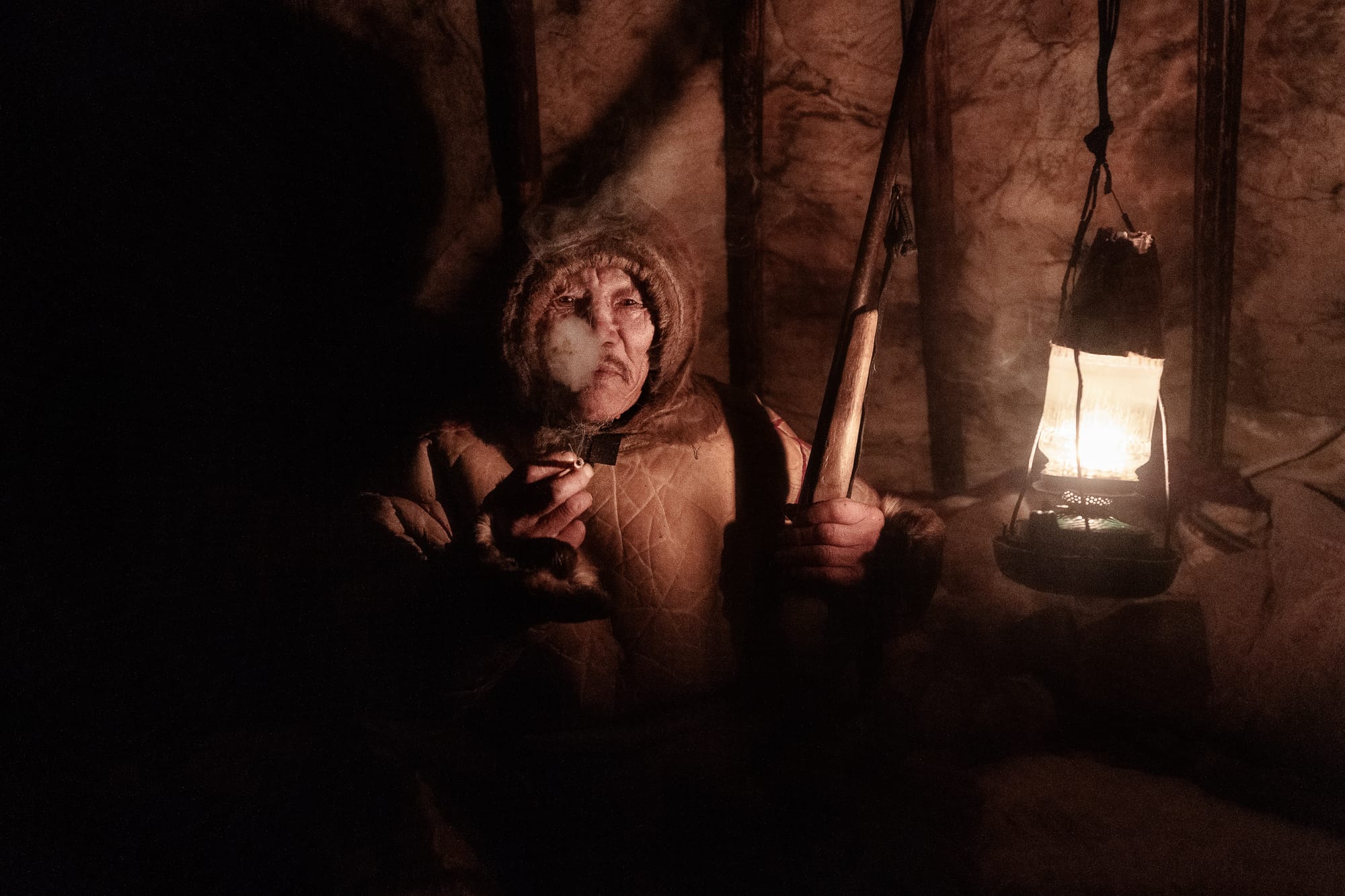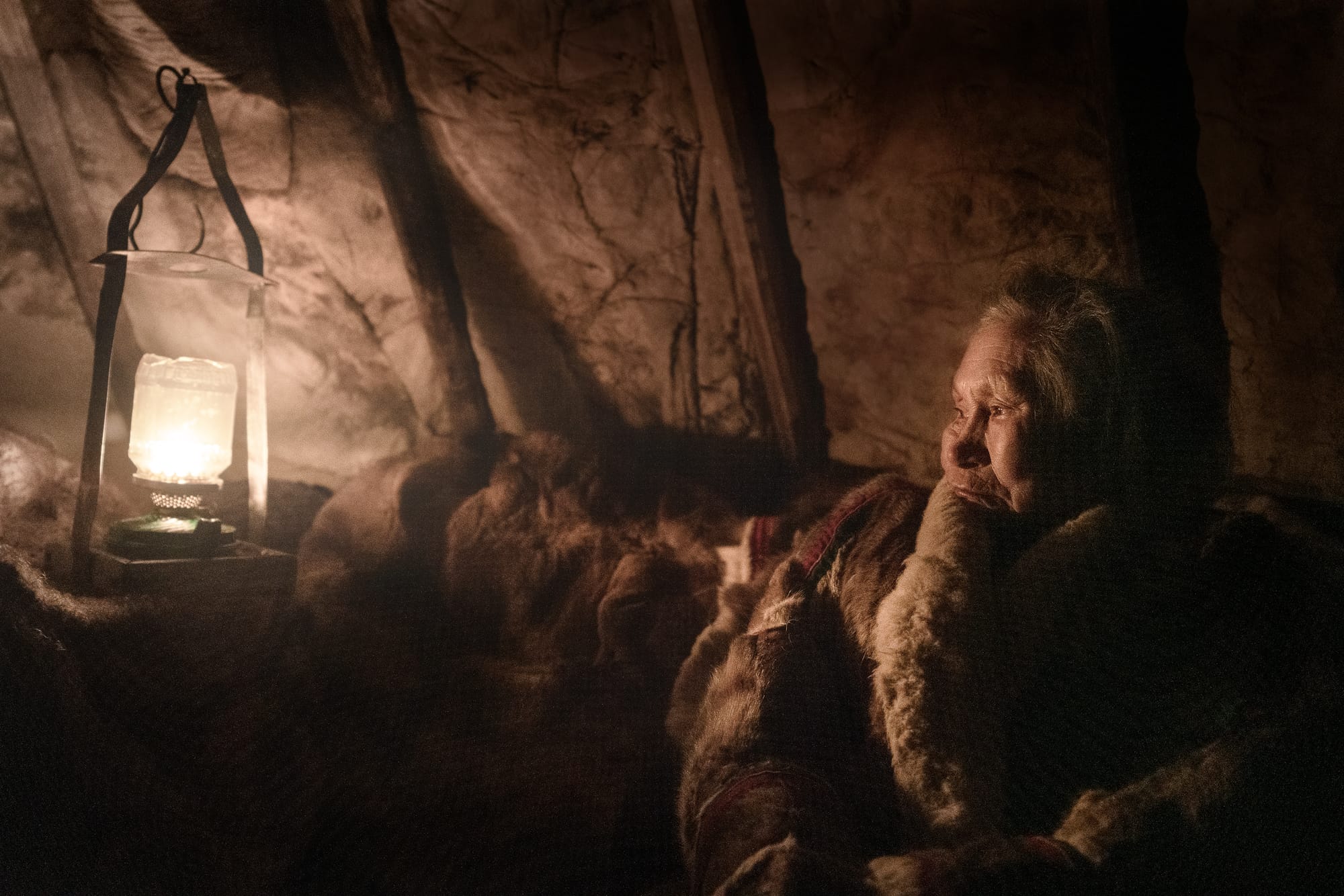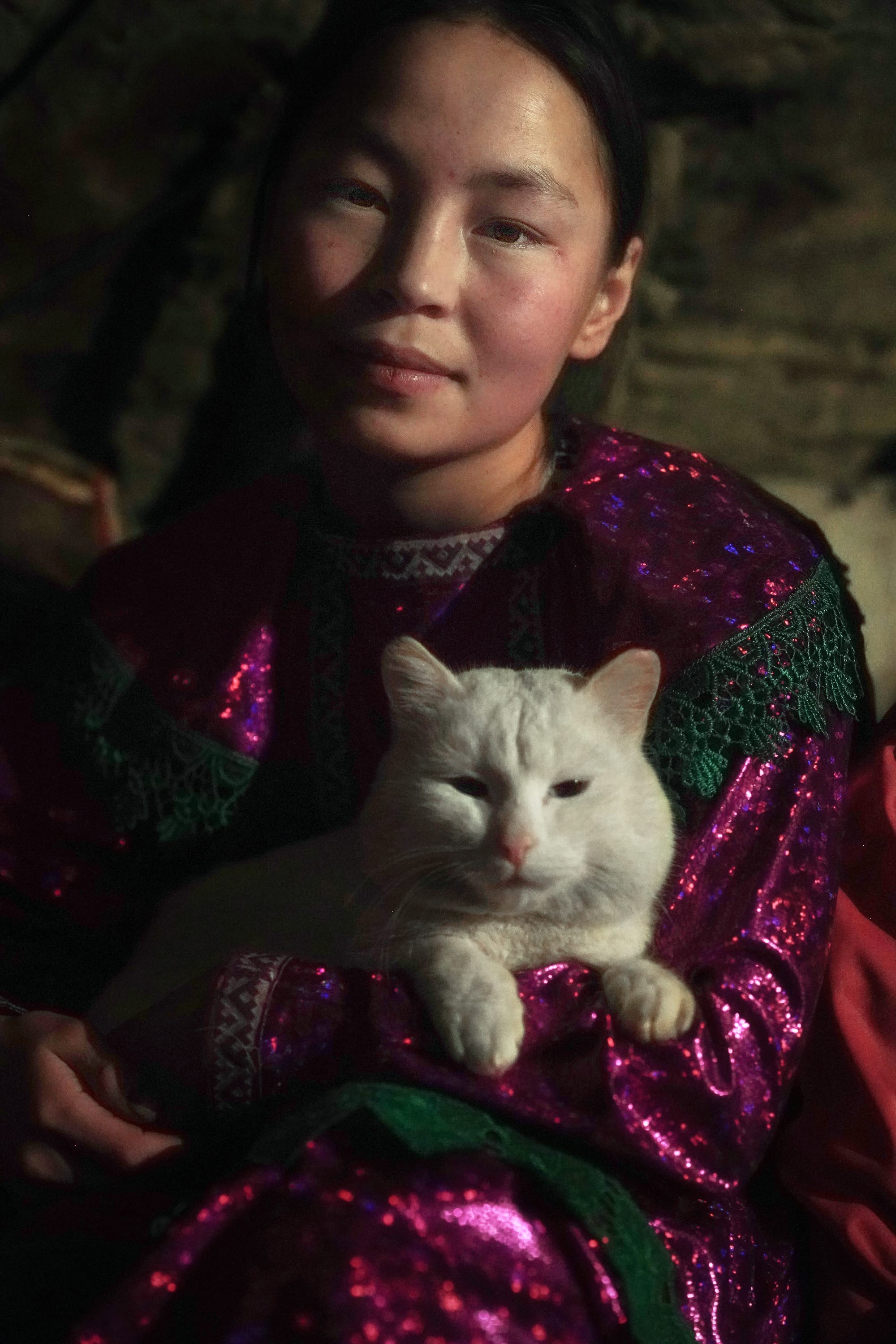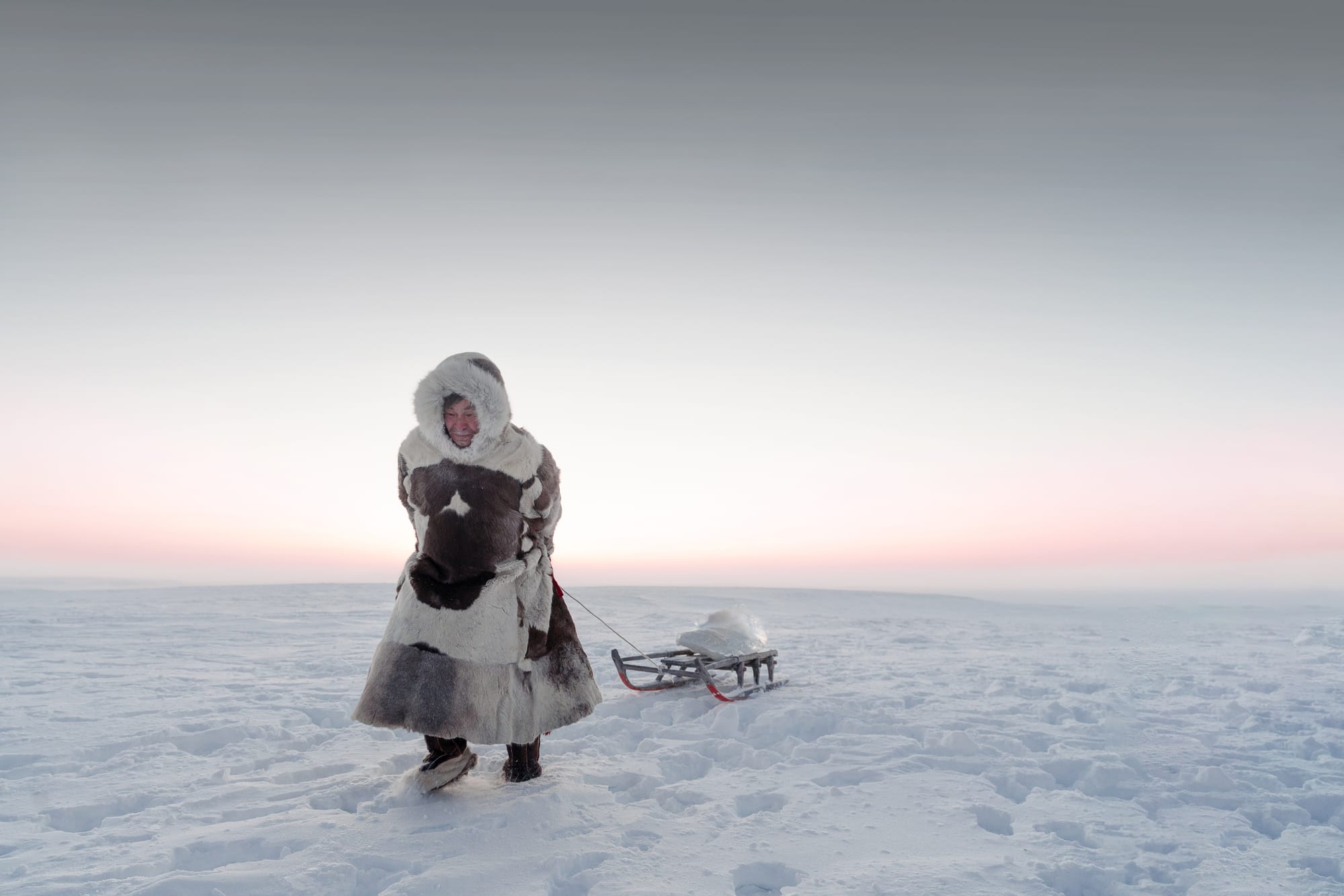
In the Nenets language, Yamal means The end of the world, a remote and windy place covered in permafrost, meandering rivers and arctic tundra. The Yamal Peninsula is a strip of land that extends from northern Siberia to the Kara Sea, hundreds of kilometers above the Arctic Circle
The Nenets are nomadic and move with their reindeer according to the season following ancient arctic migration routes. During the winter, when temperatures can reach -50° and above, the reindeer are taken to graze in the forests further south, while in the summer, they return north. This transhumance leads the Nenets to travel about 1,200 kilometers every year, making it one of the longest in the world.
The Nenets have not had and still do not have an easy life. During the Soviet regime they were subjected to decades of enforced collectivization and religious persecution, whereas before then they had survived centuries of impositions by tsarist Russia. Children were separated from their families and forced to go to government-run schools where they were forbidden to speak their own language. Despite this, the Nenets have managed to preserve their language and their nomadic traditions.
In recent years, the Nenets population has also been put to the test by the problems caused by global warming which have led and still lead to the death of hundreds of thousands of reindeer, unable to feed themselves due to too much rain which subsequently freezes, creating a thick layer of ice on the ground. But global warming is not the only threat facing the Nenets: economic development is what puts a strain on their population.
In the Yamal peninsula area there is a large gas field, Bovanenkovo, where 1/3 of all gas in Russia is extracted. The north of the peninsula has been closed by the Russian army and extraction plants and new infrastructures have been built, reducing pastures and limiting the migration of some herds.
Furthermore, the young people who leave for study, in the closest colleges, but in any case hours and hours away from the camps, hardly return to nomadic life: it is reported that over 80% of the boys do not return to their original nuclei, but stop in the "city" by choosing a sedentary life.
From the Nenets it becomes very clear how many things can be superfluous and how many are essential; and maybe even how close the end of the world.
